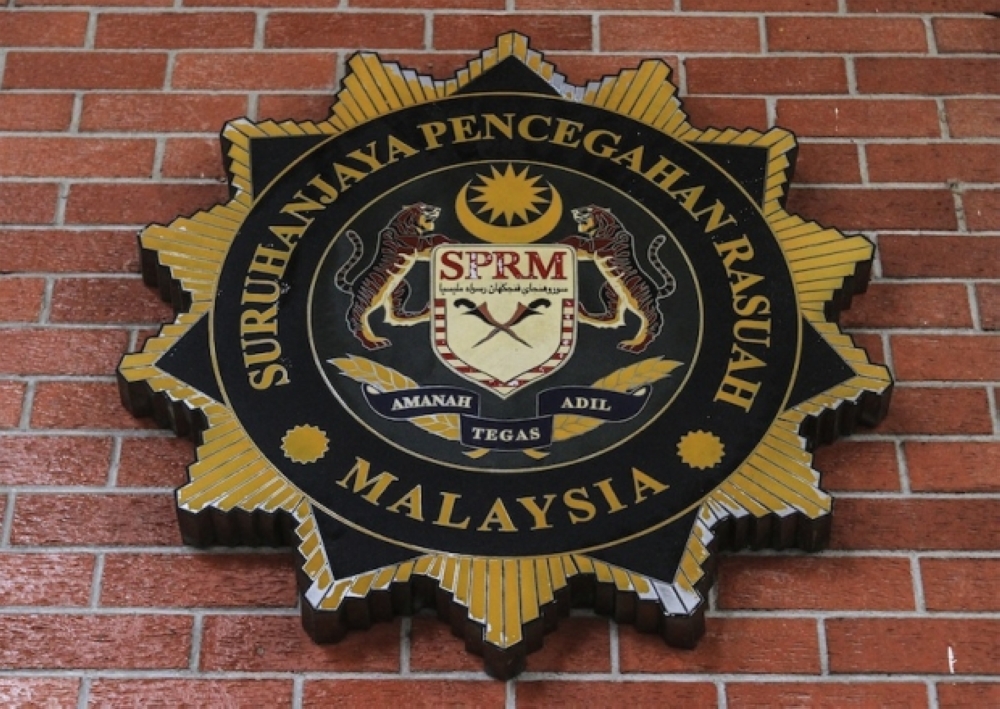FEBRUARY 2 — We must join hands in support of His Majesty Sultan Ibrahim’s resolve to fight corruption. Sultan Ibrahim was sworn in on Wednesday (Jan 31) as the new King of Malaysia.
We must call for the enhancement of the power of investigations under the Malaysian Anti-Corruption Commission (MACC) Act 2009. Of relevance currently is Section 36 of the Act under which former finance minister Daim Zainuddin and his wife Na’imah Abdul Khalid have been charged this week (Jan 29) and last week (Jan 23) respectively.

Section 36 provides for the power to obtain information in the course of investigation of corruption offences. Former law minister Zaid Ibrahim has likened the investigating authority with such power to “nosy neighbour”.
“In Britain and many places, the order to compel the production and disclosure of assets or financial records of unexplained wealth of suspected criminals is by the court. Not the investigating authority. This ensures proper oversight so no one can harass or intimidate their political opponent,” Zaid posted on his X account.
Unfortunately, Zaid did not specify the British law and name the places where it is the court that compels the disclosure of assets.
One can however cite Hong Kong’s Prevention of Bribery Ordinance (POBO). Under Section 14, it is the court that makes an order authorising the Commissioner of the Independent Commission Against Corruption by a notice in writing to require a suspect to furnish to the investigating officer (IO) their assets.
Lest we forget, Section 36 of the Act and its predecessors have been in the statute book since 1961, and not “for the last 13 years” as contended by Zaid. This is by virtue of Section 25 of the Prevention of Corruption Act 1961 (PCA). The power then was vested in the Public Prosecutor.
The power was reenacted in Section 32 of the Anti-Corruption Act 1997 (ACA) which repealed the PCA. The ACA, in turn, was repealed by the MACC Act 2009. The power is now in Section 36 of the Act and vested in “an officer of the Commission of the rank of Commissioner and above”.
The power has also been in Singapore’s Prevention of Corruption Act 1960 (PCA) since its enactment. It remains vested in the Public Prosecutor. Singapore’s PCA has always been cited in the republic’s success story and the effectiveness of its strict zero tolerance approach to corruption.
Walter Sandosam, once a member of the Consultation and Prevention of Corruption Panel — one of the five panels which oversee MACC operations — once wrote to Malaysiakini in 2015 that it was imperative to ensure that Section 36 of the Act was amended to enable the MACC to compel individuals to declare their assets. He added:
“Currently, there is no such provision. It is therefore important for members of Parliament to support the amendment to the law and the federal constitution to increase the commission’s independence and effectiveness in fighting graft.”
In the same year, Transparency International-Malaysia (TI-M) also called on the government to amend Section 36 “to compel an individual in certain circumstances to declare his finances or assets without the MACC first launching a formal corruption investigation”.
The law, said TI-M, would only be effective with a vigorous zero tolerance enforcement policy.
A more recent call to amend Section 36 was made by The Center to Combat Corruption and Cronyism (C4 Center) in 2021 so that the MACC would be able to deal with “those living an extravagant lifestyle beyond one’s own to be deemed an ‘offence’ thus potentially extending the function of Section36 to trigger immediate investigation by the anti-graft body”.
According to C4 Center, an amended Section 36 of the Act would allow investigations to be undertaken against “those suspected to be abusing their positions of power for corrupt purposes and monetary gain, thus increasing the efficacy of Malaysia’s anti-corruption laws and regulations and paving the way for targeted enforcement to be carried out to eventually bear the desired results”.
Against Zaid’s criticism of Section 36, at least three prominent parties have long called for the enhancement of the power to investigate corruption offences.
What say you?
*This is the personal opinion of the writer or publication and does not necessarily represent the views of Malay Mail.





















